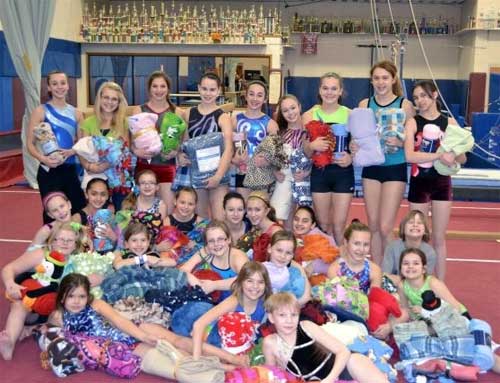The League of Women Voters of Wisconsin warns that the populations of Door County and Wisconsin could well be under counted in the 2010 Census due to inadequate instructions on the Census form.
“A number of retired individuals often winter in the south,” says Andrea Kaminski, Executive Director of the League. “They consider their permanent residence in Wisconsin. In past years, there were clear instructions on filling out the form if you received it in Tampa, but had your full time residence in Stevens Point. That is not the case this year.”
 The results of the census are used to determine Congressional seats, legislative districts, and the distribution of over $400 billion in federal funds. Localities use census data to site hospitals and schools. Businesses use them to determine where to build new plants and site stores.
The results of the census are used to determine Congressional seats, legislative districts, and the distribution of over $400 billion in federal funds. Localities use census data to site hospitals and schools. Businesses use them to determine where to build new plants and site stores.
“Wisconsin already ranks low in receiving federal dollars,” says Kaminski, “We don’t want an undercount to exacerbate that situation.”
For individuals who go south for the winter, the 2010 census form does not offer clear instructions on how best to fill it out. Snowbirds will receive pre-addressed questionnaires at both their winter residences and their temporarily unoccupied northern homes in March. The U.S. Postal Service will not forward census forms, so many people are likely to fill out the questionnaire they receive at their winter home. In the past there have been ways they could indicate that their primary residence is in Wisconsin. In 1990, snowbirds could complete the form delivered to their winter address, noting that they have a “usual residence elsewhere” and providing the alternate address; the Census Bureau transferred these respondents so they would be counted at the more permanent address. The 2000 questionnaire instructed households not to report people who lived somewhere else “most of the time.”
For 2010, Question 10 asks if a person sometimes lives elsewhere and, if so, “at a seasonal or second residence.” Even if respondents indicate a second residence, they will be counted in the southern state’s population. Meanwhile, census takers will visit their unresponsive northern homes in May and June, when most snowbirds have returned home. If the dual homeowner tells the enumerator they completed a census form while living in their southern home, they will not be counted up North, even if they live there most of the time.
To make it come out right, respondents should not complete the southern questionnaires. They should write ‘zero’ for the number of April 1 residents, put “usual residence elsewhere” somewhere on the form, and mail it back. Then they should fill out the northern address questionnaire or respond to a 2010 census taker during door-to-door canvassing. Further, they have to say that they “lived” at the northern address on April 1 – after all, they actually did, but were just away on extended vacation.
Northern states are at real risk of losing population that rightfully belongs to them, along with seats in Congress and federal funds, especially for programs that help seniors. It’s too late to fix this flaw in the system now, so it is critical to educate snowbirds
“We urge those going south this winter to take note of how to deal with the census form. We hope that friends and relatives remind them,” urges Kaminski.
2010 Census is Recruiting for Thousands of Jobs in Wisconsin
The U.S. Census Bureau recently announced that 48,000 people are now being recruited across the State of Wisconsin to work as census takers for the 2010 Census between December, 2009 and June, 2010. Tests for these positions—which pay between $11.50 and $15 per hour—are taking place through January at locations throughout the state. Testing times and locations across Wisconsin are available by calling, toll free, 1-866-861-2010. More information about the positions, including application forms and a practice test, are available at the 2010 Census website:
www.2010censusjobs.gov.  Wisconsin Census Jobs Fact Sheet
Wisconsin Census Jobs Fact Sheet
The League of Women Voters of Wisconsin Education Fund is a member of We Count! Wisconsin, a coalition of organizations working to promote an accurate count for Wisconsin in the 2010 Census. Other members include Wisconsin Nonprofits Association and Community Shares of Wisconsin.



